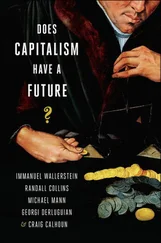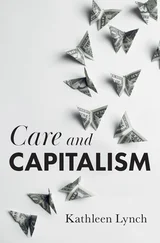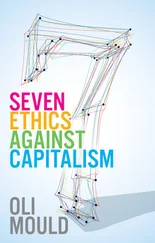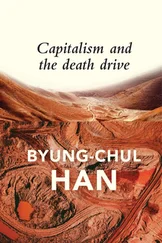Kunal Roy Chowdhuri, “Gandhi’s theory of sarvodaya socialism,” Gandhi Marg, Vol. 15, No. 1, April-June 1993, pp. 62-77; Amritananda Das, Foundations of Gandhian Economics (Bombay: Allied, 1979); Romesh Diwan, “Income distribution theories and Gandhian economics,” Gandhi Marg, Vol. 6, No. 10, January 1985, pp. 707-720; Romesh Diwan and Mark Lutz (eds.) Essays in Gandhian Economics (New Delhi: Gandhi Peace Foundation, 1985); J. C. Kumarappa, Swaraj for the Masses (Bombay: Hind Kitabs, 1948); J. C. Kumarappa, Economy of Permanence: A Quest for a Social Order Based on Non-Violence (Rajghat, Kashi.: Akhil Bharat Sarva-Seva-Sangh-Publications, 1958, 4th edition); Jai Narain, Economic Thought of Mahatma Gandhi (New Delhi: Sehgal, 1992); J. D. Sethi, “Gandhian philosophy and theory of international trade,” Gandhi Marg, Vol. 11, No. 3, October-December 1989, pp. 303-326; Rama Shankar Singh, “Elements in Gandhian economics,” Gandhi Marg, Vol. 12, No. 4, January-March 1991, pp. 454-466.
Quoted in Chowdhuri, pp. 66-67.
Romesh Diwan and Sushila Gidwani, “Elements in Gandhian economics,” Gandhi Marg, Vol. 1, No. 5, August 1979, pp. 248-258, reprinted in Diwan and Lutz, pp. 54-65.
Detlef Kantowsky, Sarvodaya: The Other Development (New Delhi: Vikas, 1980). The movements in India and Sri Lanka are different in a number of respects but are grouped here for convenience.
On anarchism, see for example Daniel Guérin, Anarchism: From Theory to Practice (New York: Monthly Review Press, 1970).
See chapter 7.
Ken Smith, Free is Cheaper (Gloucester: John Ball Press, 1988), presents a case for free distribution, though not from an anarchist starting point.
This is the model of collectivist anarchism. An alternative model is free-market individualist anarchism, which accepts private property. Voluntaryism, discussed later, falls in this latter tradition.
See Guérin, op. cit.; Michael Raptis, Revolution and Counter-Revolution in Chile: A Dossier on Workers’ Participation in the Revolutionary Process (London: Allison & Busby, 1974).
George Melnyk, The Search for Community: From Utopia to a Co-operative Society (Montreal: Black Rose Books, 1985); Jenny Thornley, Workers’ Co-operatives: Jobs and Dreams (London: Heinemann, 1981). For a critique of cooperative practice, see Charles Landry, David Morley, Russell Southwood and Patrick Wright, What a Way to Run a Railroad: An Analysis of Radical Failure (London: Comedia, 1985).
Ken Coates, Work-ins, Sit-ins and Industrial Democracy: The Implications of Factory Occupations in Great Britain in the Early ’Seventies (Nottingham: Spokesman, 1981).
Colin Ward, Anarchy in Action (London: Freedom Press, 1982).
Allen Graubard, Free the Children: Radical Reform and the Free School Movement (New York: Random House, 1972); John Holt, Instead of Education: Ways to Help People Do Things Better (Harmondsworth: Penguin, 1977); Jonathan Kozol, Free Schools (Boston: Houghton Mifflin, 1972); Joel Spring, A Primer of Libertarian Education (Montreal: Black Rose Books, 1975).
John F. C. Turner, Housing by People: Towards Autonomy in Building Environments (New York: Pantheon, 1977).
This point is developed in Brian Martin, “Eliminating state crime by abolishing the state,” in Jeffrey Ian Ross (ed.), Controlling State Crime: An Introduction (New York: Garland, 1995), pp. 389-417,
“Statement of purpose,” The Voluntaryist, No. 1, October 1982, p. 1. See also Carl Watner, “What we believe and why,” The Voluntaryist, No. 57, August 1992, pp. 1, 7.
Voluntaryists can also draw links with a number of prior thinkers, such as the Stoics of ancient Greece. See Carl Watner, “Thinkers and groups of individuals who have contributed significant ideas or major written materials to the radical libertarian tradition,” The Voluntaryist, No. 25, April 1987, pp. 1, 7.
Carl Watner, “The fundamentals of voluntaryism,” The Voluntaryist, No. 40, October 1989, pp. 1, 3.
The Voluntaryist, PO Box 1275, Gramling SC 29348, USA. See also Carl Watner (ed.), I Must Speak Out: The Best of The Voluntaryist 1982-1999 (San Francisco: Fox & Wilkes, 1999), in which most of the articles cited here are reproduced.
Carl Watner, “Voluntaryism and the evolution of industrial standards,” The Voluntaryist, No. 52, October 1991, pp. 1, 4-7; Carl Watner, “The most generous nation on earth: voluntaryism and American philanthropy,” The Voluntaryist, No. 61, April 1993, pp. 1, 3-7; Carl Watner, “`Plunderers of the public revenue’: voluntaryism and the mails,” The Voluntaryist, No. 76, October 1995, pp. 1-7.
Carl Watner, “`Stateless, not lawless’: voluntaryism and arbitration,” The Voluntaryist, No. 84, February 1997, pp. 1-8.
Robert C. Ellickson, Order Without Law: How Neighbors Settle Disputes (Cambridge, MA: Harvard University Press, 1991).
Benjamin Ginsberg, The Consequences of Consent: Elections, Citizen Control and Popular Acquiescence (Reading, MA: Addison-Wesley, 1982); Thomas S. Martin, “Unhinging all government: the defects of political representation,” Our Generation , Vol. 20, No. 1, Fall 1988, pp. 1-21; Edmund S. Morgan, Inventing the People: The Rise of Popular Sovereignty in England and America (New York: Norton, 1988).
The word “demarchy” was coined by John Burnheim, whose book Is Democracy Possible? The Alternative to Electoral Politics (London: Polity Press, 1985) is the pioneering treatment of the model. See also F. E. Emery, Toward Real Democracy (Toronto: Ontario Ministry of Labour, 1989); Brian Martin, “Democracy without elections,” Social Anarchism, No. 21, 1995, pp. 18-51.
On New England town meetings, see Jane J. Mansbridge, Beyond Adversary Democracy (New York: Basic Books, 1980). I thank Ellen Elster for comments on Norwegian municipalities.
Mogens Herman Hansen, The Athenian Democracy in the Age of Demosthenes: Structure, Principles and Ideology (Oxford: Basil Blackwell, 1991).
Lyn Carson and Brian Martin, Random Selection in Politics (Westport, CT: Praeger, 1999).
Anders Corr, No Trespassing! Squatting, Rent Strikes, and Land Struggles Worldwide (Cambridge, MA: South End Press, 1999).
Kalle Lasn, Culture Jam: The Uncooling of America(TM) [ (New York: Eagle Brook, 1999) and the magazine Adbusters.
There is no definitive work on nonviolent action by workers. Lots of material is available in writings on nonviolent action (see chapter 2), studies of workers’ control (see below) and history of the labour movement. See for example Root & Branch (ed.), Root & Branch: The Rise of the Workers’ Movements (Greenwich, CT: Fawcett, 1975).
Читать дальше
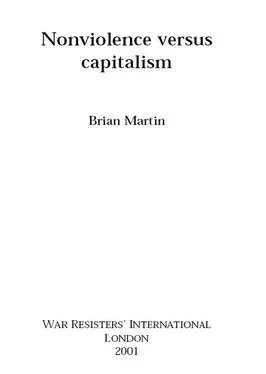
![Brian Jacques - Martin the Warrior [Redwall 6]](/books/128385/brian-jacques-martin-the-warrior-redwall-6-thumb.webp)

